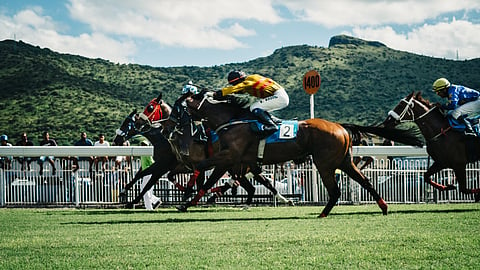

Racehorse trainers are an essential part of the horse racing industry. They are responsible for preparing and conditioning racehorses to compete at their highest level. The job of a racehorse trainer is demanding and requires a deep understanding of horses, their behavior, and their physical capabilities.
In this article, we will provide a comprehensive guide to the world of racehorse trainers. We will explore their responsibilities and duties, compensation and earnings, requirements for becoming a trainer, the characteristics of a successful trainer, and interesting facts about racehorse training.
The role of a racehorse trainer is multifaceted and requires a range of skills and expertise. It involves managing a team of staff, including assistant trainers, grooms, and exercise riders, to ensure that each horse receives the individual attention and care it needs. Trainers must also devise training programs that are tailored to each horse's strengths and weaknesses, monitor their progress, and adjust their training accordingly.
The responsibilities and duties of a racehorse trainer, such as ensuring the horses are fit to race, supervising staff, and keeping up to date on racing regulations, are crucial to their success in the industry. A racehorse trainer's main responsibility is to win races while running a business and maintaining relationships with owners, jockeys, and racetrack officials.
To achieve this, trainers must not only oversee the care and maintenance of the horses but also manage their staff and plan strategies to position the horse for success. Additionally, trainers have a fiduciary duty to the horse owners, keeping them informed about their horse's health and providing accurate accounting.
Conditioning is also an essential part of a racehorse's training, and trainers must decide on speed, distance, and the number of days needed for each horse. To ensure that the horses in his care are treated humanely, it is the trainer's responsibility to conduct thorough background checks on his staff and to keep them under close supervision.
Racehorse trainers can earn a significant income through a combination of day rates and purse percentages, which reflects the rigorous demands of their profession. Day rates typically range from $45 to $100 daily, covering expenses associated with keeping a horse but not incidental expenses.
On the other hand, purse percentages typically give trainers and jockeys 10% of the purse, which can range from a few thousand dollars to millions in high-profile races. Private trainers may also be compensated on a set salary. The amount of compensation a trainer receives depends on their reputation, the success of their horses, and the size of their stable. Therefore, it is not uncommon for top trainers to earn millions of dollars annually.
Becoming a licensed racehorse trainer requires passing both a written and practical examination to demonstrate an understanding of horse anatomy, disease, medication, rules and regulations, and training procedures and equipment.
The written exam typically covers topics such as horse care, medication, and racing regulations, while the practical exam requires the candidate to demonstrate their ability to train a horse and manage a stable.
In addition to passing the licensing exams, aspiring trainers must also work their way up through various positions such as hot walker, groom, exercise rider, foreman, and assistant trainer before they can become head trainers. This allows them to gain practical experience in all aspects of racehorse care and management and develop their training techniques.
Successful trainers must possess a combination of intelligence, reflection, and drive, as well as analytical skills and patience to understand each horse's personality and tailor the training accordingly.
Analytical skills are essential for trainers to assess the horse's strengths and weaknesses and identify potential issues early on. They also need to keep up with the latest research and technologies to stay ahead of the competition.
Patience is a virtue for trainers, as it takes time to train a racehorse. It requires a lot of effort, repetition, and consistency to teach horses the racing skills they need to succeed.
Trainers must also be able to adapt to each horse's needs and be willing to try different approaches until they find the best one.
In conclusion, the world of racehorse trainers is a fascinating and challenging one that requires dedication, skill, and a deep love of horses. From formulating training regimens to overseeing a team of staff and ensuring their charges are primed for various Belmont Stakes wagering options, racehorse trainers are tasked with a diverse array of duties and challenges every day.
These individuals are responsible for the well-being and performance of some of the most magnificent animals on the planet, and they take this responsibility seriously.
Despite the hard work and long hours, successful trainers find great satisfaction in seeing their horses reach their full potential and achieve success on the racetrack.